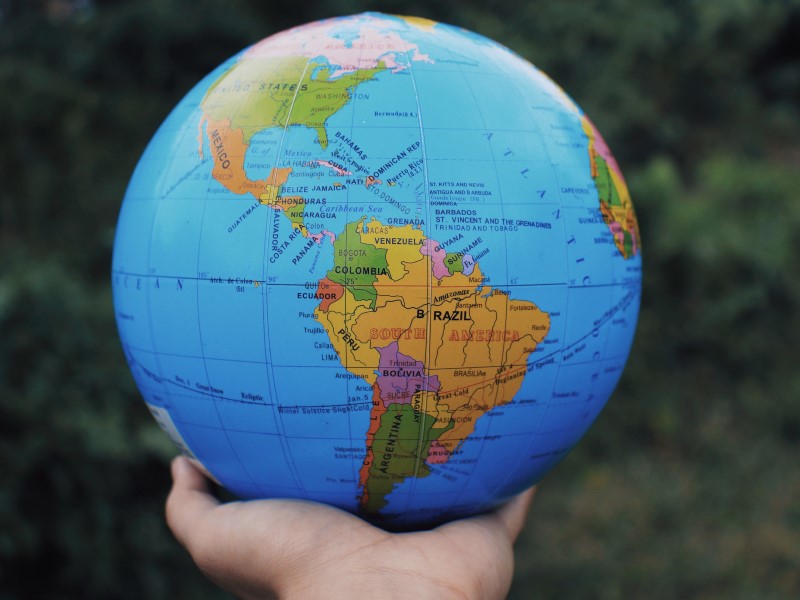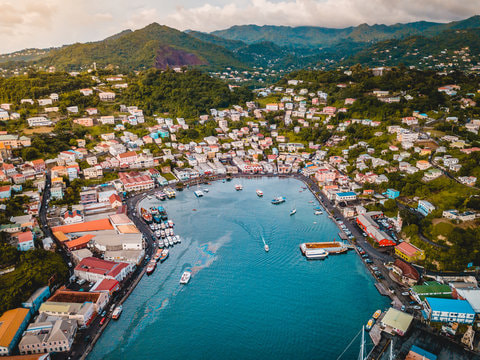|
Some of you who know me, know that I was born and raised in Hungary, went to school in Germany, spent most of my adult life in the US with time in England and Grenada.
Confusing? Not to me. My parents were of different nationalities and spoke four languages each, so mine was not the typical home. Still, I might have had a more challenging time adjusting to the many places we, later I, lived in if it were not for their acceptance of cultural differences. Some of the places I lived in were not directly by choice. Germany is where we fled during the Hungarian revolution. There we waited 2 years for the paperwork to be allowed to settle in the US. I was sent to a parochial boarding school, very small, run by the most wonderful four nuns. We were a mixed lot of girls from cities and farm country. The rules were extremely strict. We were regimented as to daily activities, allowed only to go to early mass in the Cathedral, otherwise out only on Saturday afternoons and Sunday, after mass and breakfast until 4:00pm. Yet we had great fun and got up to all sorts of mischief. One of my favorite memories is the Easter tradition, which I have not encountered anywhere else. On Good Friday, in the evening there is a processional with parishioners carrying the cross around the church and the nearby neighborhood. On Holy Saturday the church is kept dark, doors closed, the cross draped in purple cloth. Shortly before midnight on Easter Sunday, the congregation returns to the church, holding candles, unlit. The church is still dark, except for what light comes in from streetlights. On the stroke of midnight, the candles we hold are lit, the organ booms, the cloth is removed from cross, each person turns to his neighbor, saying,” Christ is risen,” then the Easter mass is held. From Germany, on to the US and a culture very different from anything I had experienced before. I was stuck in the second half of junior year in a school highly recommended to my parents. The student body at that time was about 90% Jewish, a group to which I had had no exposure before. I was incredulous at the ignorance which greeted me. I was introduced as the refugee from Hungary. I was asked by many of the kids questions like “what part of Germany, Hungary was,” how come I was not Jewish, what language did I speak, etc. I settled in somewhat uneasily, surprised by the daily morning routine, starting with what was called “home room.” This 45-minute time was given to us to review homework, check our class schedule and prepare for the day. Instead, the time was spent with girls putting on more makeup than I had ever seen and boys discussing their sport programs. My English was less than perfect and at this point and I took full advantage of the fact. When I had not completed my homework, I would put on a sad face and tell the teacher how sorry I was, but it was just too hard for me. They were all sympathetic and I always got away with it that first semester. My English improved rapidly, in large part due to the excellent English teacher who taught the best of the language and insisted on correct usage at all times. Dating was another new thing to me. Girls my age were never allowed to go anywhere unchaperoned, at that time in Europe. My parents tried to accompany me on my dates but learned quickly that this would end any budding relationship for me, so they relented. By the time I entered university, I was pretty well acculturated, and the ensuing years were spent getting a degree and finding a good job. This was accomplished and life went on pleasantly. Then I met and married an Englishman. During the 4 years I lived in England, a whole new cultural landscape had to be navigated. By now, adapting was fairly easy and there was no language problem. When the marriage ended, back I went to the US, where life settled back into the routine of being a single mom of a 5-year-old, then getting re married. Fast forward 34 years and here I am in Grenada, the place I first visited in 1968 and have loved ever since. As I am now an expert at navigating cultural nuances, life is good living in my personal paradise. I have kept some traditions from all the places where I have lived and adapted ones I particularly like in my new home.
0 Comments
If you, like me, retired to a country other than where you had lived prior to retirement, then you are an expat. The word can be neutral or carry some negative connotations, depending on who is using it. I choose to assign a neutral interpretation to it.
As an expat, you have many choices as to how you will live in your adopted new home, and none is right or wrong but simply a function of your comfort zone. Nor is a choice set in stone. It is possible to go from one mode to another over time. Some people will seek to associate with people similar to them, be it from the same country or a particular community. They will live where other expats live, shop in a supermarket, buy items familiar to them, attend some local entertainment events, eat in restaurants that serve eclectic food. They center their activities around their compatriots, and they are not usually involved in local civic or cultural groups. Many maintain homes in the countries in which they lived before retiring and will spend part of the year there, part in their new home. Others will choose to become active in some civic project to help a particular segment of the local population. In Grenada, there is a group run by an expat with several expats as well as local people who do an ongoing program to teach swimming. Another group raises funds to assist students of limited means to further their education. Yet others, will establish small businesses, making jewellery, catering, or IT consulting. I decided early on that I would find some meaningful activity, not just meaningful to me but something that in some way gives back to this lovely island which welcomed me. The first of these was a 4-year volunteer service with the Grenada Association of Retired Persons. Then followed membership in the Grenada Green Group, in which I am still active, then joining the Willie Redhead Foundation dedicated to advocating for the preservation of the built history of the island. I am now President of the Foundation. In addition, I maintain an active social life with friends both expats and Grenadians. I shop for local food at the farmers’ market, I buy my meat from my local butcher, my fish at the fish market and often eat in restaurants that serve local food. My life in retirement is rich, interesting, and challenging. I would not have it any other way. |
AuthorHi I'm Maria Davies. On this blog I share my life in the Caribbean as well as my passion for mentoring, food, travel and fitness. Enjoy! Archives
April 2024
|


 RSS Feed
RSS Feed